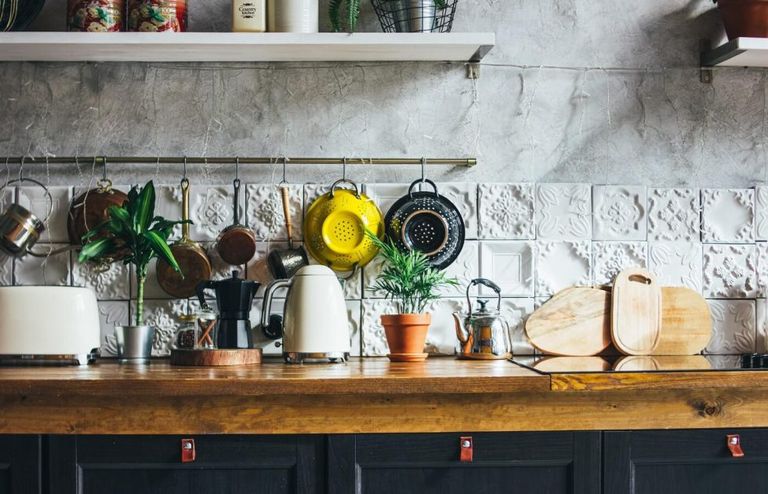In today's world, where environmental concerns are at the forefront of public discourse, adopting sustainable practices in the kitchen has become increasingly important. From reducing food waste to minimizing plastic packaging, there are numerous ways individuals can make a positive impact on the environment through their culinary habits. In this article, we will explore some simple yet effective sustainable kitchen practices that can help reduce our carbon footprint and promote a healthier planet.
1. Minimizing Food Waste:
Food waste is a significant environmental issue, contributing to greenhouse gas emissions, wasted resources, and landfill pollution. By adopting mindful practices to minimize food waste, individuals can make a meaningful difference in reducing their environmental impact. Here are some strategies to consider:
- Meal Planning: Plan meals ahead of time to avoid overbuying ingredients and ensure that perishable items are used before they spoil.
- Proper Storage: Store food properly to prolong its freshness and prevent spoilage. Invest in reusable containers, jars, and storage bags to keep fruits, vegetables, and leftovers fresh for longer.
- Creative Cooking: Get creative with leftover ingredients and meals. Use vegetable scraps to make homemade broth or compost them for gardening. Transform stale bread into croutons or breadcrumbs. Embrace the "nose-to-tail" and "root-to-stem" cooking approaches to maximize the use of every part of the ingredients.
- Portion Control: Serve appropriate portion sizes to avoid excess food waste. Consider using smaller plates and utensils to help control portion sizes and reduce the temptation to overeat.
- Composting: Compost food scraps and organic waste to divert them from landfills and create nutrient-rich soil for gardening. Many municipalities offer composting programs or community composting sites for residents to participate in.
2. Reducing Plastic Packaging:
Plastic packaging is a major contributor to environmental pollution, particularly in oceans and waterways. By reducing our reliance on single-use plastics and opting for more sustainable alternatives, we can help mitigate the negative impacts of plastic pollution. Here are some ways to reduce plastic packaging in the kitchen:
- Choose Bulk Options: Purchase dry goods such as grains, beans, nuts, and spices from bulk bins using reusable containers or bags. Many grocery stores and co-ops offer bulk sections where customers can buy items in quantities tailored to their needs, reducing the need for pre-packaged products.
- Reusable Containers: Invest in durable, reusable containers for storing food items and leftovers. Opt for glass, stainless steel, or silicone containers instead of single-use plastic bags and wraps. These containers are not only more sustainable but also safer for storing and reheating food.
- BYOB (Bring Your Own Bag): Bring reusable bags and totes when shopping for groceries to avoid using plastic bags. Keep a stash of reusable produce bags handy for purchasing fruits and vegetables, and consider using cloth bags for bread and baked goods.
- DIY Alternatives: Make your own pantry staples such as salad dressings, sauces, and condiments to reduce reliance on pre-packaged products. Invest in reusable silicone molds or ice cube trays for freezing homemade broths, stocks, and sauces instead of buying them in plastic containers.
- Opt for Eco-Friendly Packaging: Look for products with minimal or eco-friendly packaging, such as cardboard, paper, or compostable materials. Choose brands that prioritize sustainable packaging practices and offer alternatives to plastic packaging.
Conclusion:
Incorporating sustainable kitchen practices into our daily routines can have a significant impact on reducing our environmental footprint and promoting a healthier planet for future generations. By minimizing food waste, reducing plastic packaging, and embracing eco-friendly alternatives, individuals can play a vital role in building a more sustainable food system and protecting the planet's natural resources. Let's commit to making small changes in our kitchens that collectively add up to make a big difference in preserving the health and well-being of our planet.

Upvoted. Thank You for sending some of your rewards to @null. Read my last posts to make sure that BLURT burning is profitable for you. Before using this bot please make sure your account has at least 100 BP. Get more BLURT:
@ mariuszkarowski/how-to-get-automatic-upvote-from-my-accounts@ blurtbooster/blurt-booster-introduction-rules-and-guidelines-1699999662965@ nalexadre/blurt-nexus-creating-an-affiliate-account-1700008765859@ kryptodenno - win BLURT POWER delegation